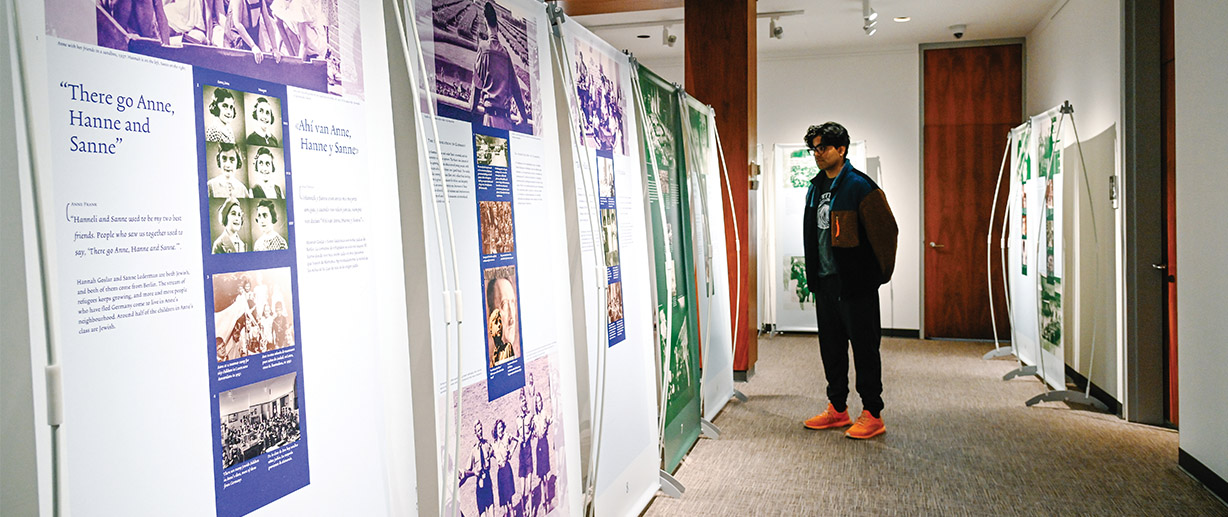By Brandi Wylie ’24
Three Wofford College seniors have contributed to telling the story of Anne Frank in a traveling exhibit that will be on campus until Nov. 19.
Ivey Rathbun ’23, Grace Levitt ’23 and Georgia Fischer ’23 are completing the course, “Anne Frank: A Case Study,” and they’re supporting the Anne Frank Center at the University of South Carolina, the only partner of Amsterdam’s Anne Frank House in North America.
This is the first time that an institution of higher education has hosted this traveling Anne Frank exhibit in South Carolina, according to Dr. Kirsten Krick-Aigner, coordinator of the German program and the course’s instructor.
Rathbun, Levitt and Fischer worked in collaboration with Krick-Aigner and Dr. Youmi Efurd, Wofford’s museum curator. They were supported by Dr. Dwain Pruitt, chief equity officer; the Sandor Teszler Library; the Cultural Affairs Committee; the German American Club of the Carolinas and Dr. Camille Bethea, associate professor of Spanish and chair of the Department of Modern Languages, Literatures and Cultures, to lead these efforts. Emily Witsell, research librarian and instruction coordinator, and other library staff also were involved in the project.
The work on display in the library tells two stories. One is the infamous history of Nazi Germany and Adolf Hitler; the other explains the life of Frank and her family. Frank was a Jewish girl living in Germany whose diary documented her family’s life in hiding in Amsterdam, Holland, while under Nazi persecution.
“The goal of bringing the exhibit to Wofford is first to expose students to the story of Anne Frank, one of the many victims of the Holocaust and, second, to learn about the importance of promoting tolerance and peace,” Krick-Aigner says. “To always strive to be a helper, an upstander, not a bystander.”
“I want students and faculty alike to find the importance of learning history,” says Rathbun, a double major in biology and psychology and a German studies minor from Myrtle Beach, South Carolina. “Not just this history but all discriminatory history because history repeats itself, and it will only stop if we can learn about and from it.”
Wofford’s own Sandor Teszler, the library’s namesake, was a Holocaust survivor. Teszler was a grandfather figure around campus who often spent time in the library when he wasn’t taking classes or serving as a course auditor. His son, Andrew Teszler, served as a Wofford trustee in the 1960s. Teszler died in 2000.
More information on his story can be found in the students’ research published at https://sites.google.com/view/annefrankahistoryfortoday/history-of-sandor-teszler.
“Our website gathered resources for people and tied in the exhibit, making it accessible for people to find, while also tying it into why it matters today and bringing in Wofford’s own connection to the Holocaust,” says Levitt, a double major in German and chemistry from Spartanburg.
Krick-Aigner says that the students created this website to “support students and visitors of our library” as well as provide the additional information that may not be included in the physical exhibit, such as videos about Frank’s life, background information, books and novels and information on Teszler.
The exhibit also will reach the Spartanburg community through elementary school tours, an initiative led by Efurd.
